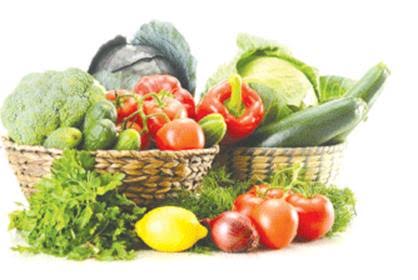In Sunday leader
What Are Gluten Free Foods And Their Benefits?
By Dr Harold Gunatillake
Health Writer
Gluten from Latin means glue. It is a protein found in wheat and other grains including in barley, rye and a cross between wheat and rye called triticale.
It is the gluten composite that makes wheat flour into dough by mixing it with salt, yeast, water and oil. This could be moulded into a ball to make baked food, such as bread, roti and so on because gluten gives elasticity to dough.
One cannot mould rice flour into dough because of the absence of gluten in it. Rice and maize too have stored gluten but their proteins differ from true gluten… You could make batter with rice flour to make hoppers, string-hoppers and other Asian treats. The batter is semi-liquid and has no elastic property like dough.
Gluten is a composite of two storage proteins- gliadin and a glutenin. Gluten is limited to certain members of the grass family only. Gluten is often present in beer and soy sauce, and this hidden gluten could raise a problem for a small number of people who suffer from coeliac disease.
Are Gluten-free foods good for those who
have no coeliac disease?
Gluten-free foods are more popular than ever in the developed countries. In 2010, Americans spent more than $2.6 billion on gluten-free items, including foods. The number seems to be increasing and by next year may reach #5 billion, according to the National Foundation for Coeliac disease.
Gluten-free foods seem to reduce waist-line. So, giving up bread may reduce your whole body weight, not alone the waist-line. Rice would be the substitute to provide the quick energy, but is that the solution? You may be adding more sugar into your diet when you go on a gluten-free diet. Some people substitute potato or tapioca and may be eating more calories, not less.
“Everybody needs the food scapegoat. [People think] if you eliminate [gluten], therefore life will be fine, all of the health issues will go away and your weight will go down and you will have the boyfriend of your dreams,” says Leslie Bonci, director of sports nutrition at UPMC Centre for Sports Medicine in Pittsburgh.
Some people believe that gluten-free diets are healthier. So you neglect your eating fruits and veggies and go for gluten free substitutes like quinoa chips, potato chips and gluten free ice cream. Such food has added sugar, more calories and tend to put on weight rather than loosing.
There are growing numbers of people who believe that gluten-free diets will lessen symptoms like abdominal pain, cramping and generalised fatigue, without having coeliac disease seems to swear by the benefits, and even with nutritional deficiencies they may get with such diets. Some people may have “gluten sensitivity or hypersensitive inner lining of the gut to gluten, and may relieve symptoms on gluten-free diets. This is briefed later in this article.
About 1 percent of the population in any country suffers from celiac disease, and the prevalence seems to be increasing. It is an auto-immune disease when gluten containing foods are rejected by the sensitive gut. Gluten as mentioned earlier contains two proteins combined with the starch in the grain- they are gliadin and glutenin. Gliadin component is toxic for people suffering from Celiac disease and it cause an immunological interaction. With this immunological reaction the gut lining gets inflamed, especially the areas that functions to absorb digested nutrients. This causes abdominal pain and distension, and lead to vitamin deficiencies, anaemia and weight loss and frequent diarrhoea.
Celiac disease though present in childhood in most cases is difficult to diagnose. If the condition is not diagnosed early, leads to auto-immune disorders, such as osteoporosis, infertility, neurological problems and may lead to cancer, in rare situations.
Gluten Sensitivity
This has no connection with celiac disease, but some people seem to react to eating gluten containing foods. This condition is referred to as the “non-celiac gluten sensitivity”. They feel tired, and suffer from gastro-intestinal upsets like abdo colics, noises, inability to concentrate on daily routines, with diarrhoea or constipation. (Our Ex-Prime Minister of Sri Lanka Mr Dudley Senanayake was suffering from this ailment, though not diagnosed at that stage. It was just brushed off as “Irritable Bowel Syndrome”.
It is reasonable to see a doctor before assuming gluten hypersensitive gut without just adopting a gluten-free diet. It is easier for the doctor to diagnose the condition, if the individual has not gone on a gluten-free diet.
Today, there are foods like bread and pasta that are gluten-free in most developed countries. Sri Lanka, being a rice-eating country, people do not have to worry about food selection, because they eat rice and curry, sometimes three times a day.
Most delicious foods are naturally gluten-free.
Beans, seeds and nuts in their natural, unprocessed form
Fresh eggs
Fresh meats, fish and poultry (not breaded, batter-coated or marinated)
Fruits and vegetables
Most dairy products
Make sure that these foods are not processed or mixed with gluten-containing grains.
Celiac disease is not easy to diagnose. It is diagnosed through laboratory tests and from biopsy sample of the gut mucosa.









No Comments